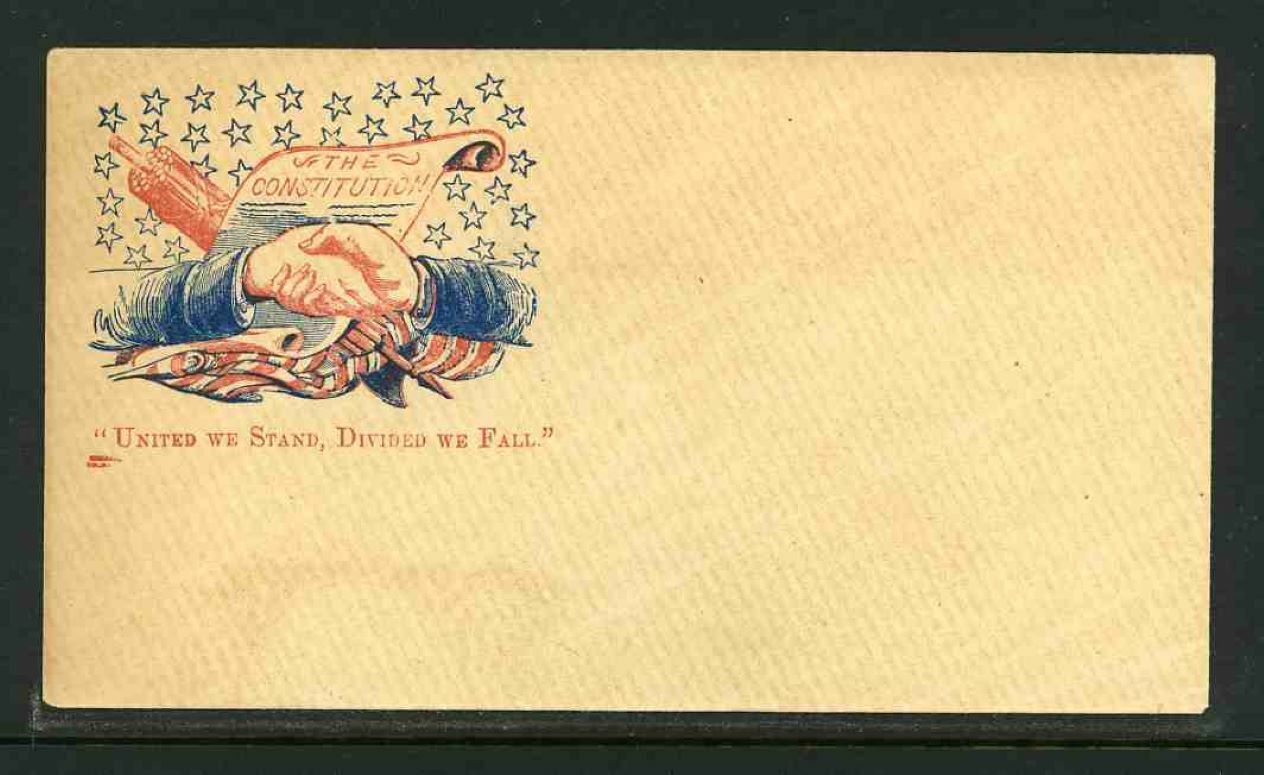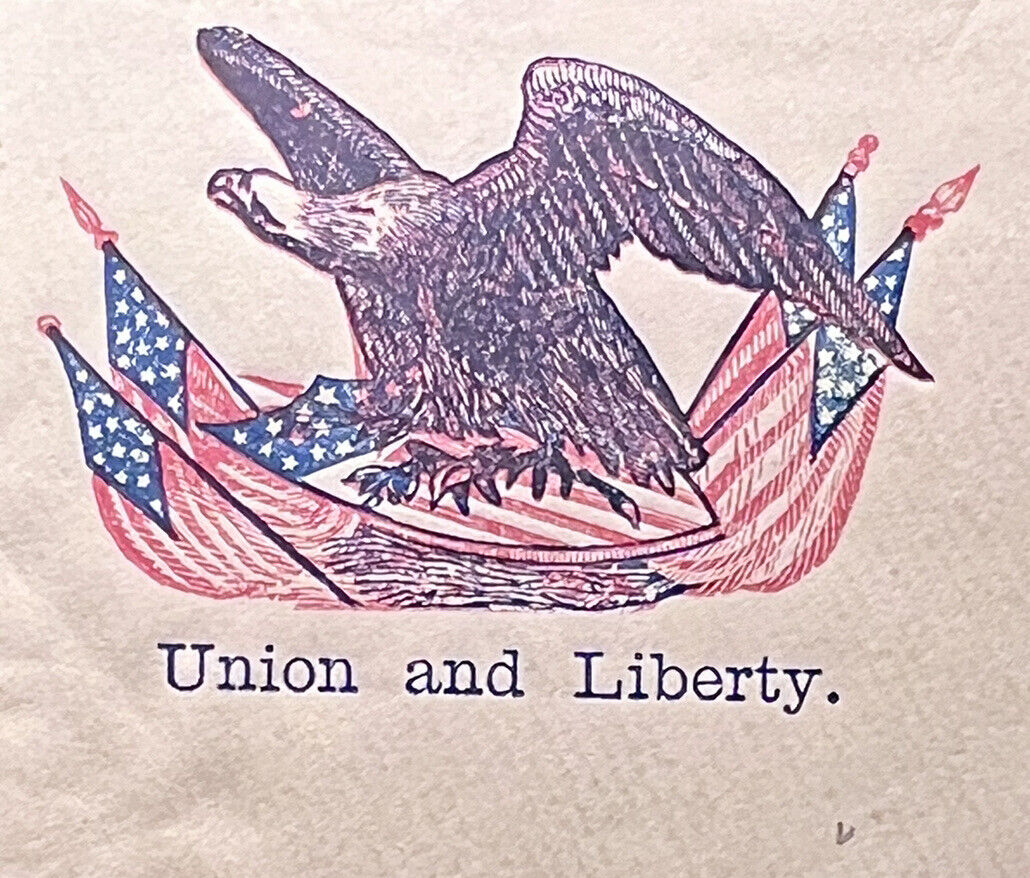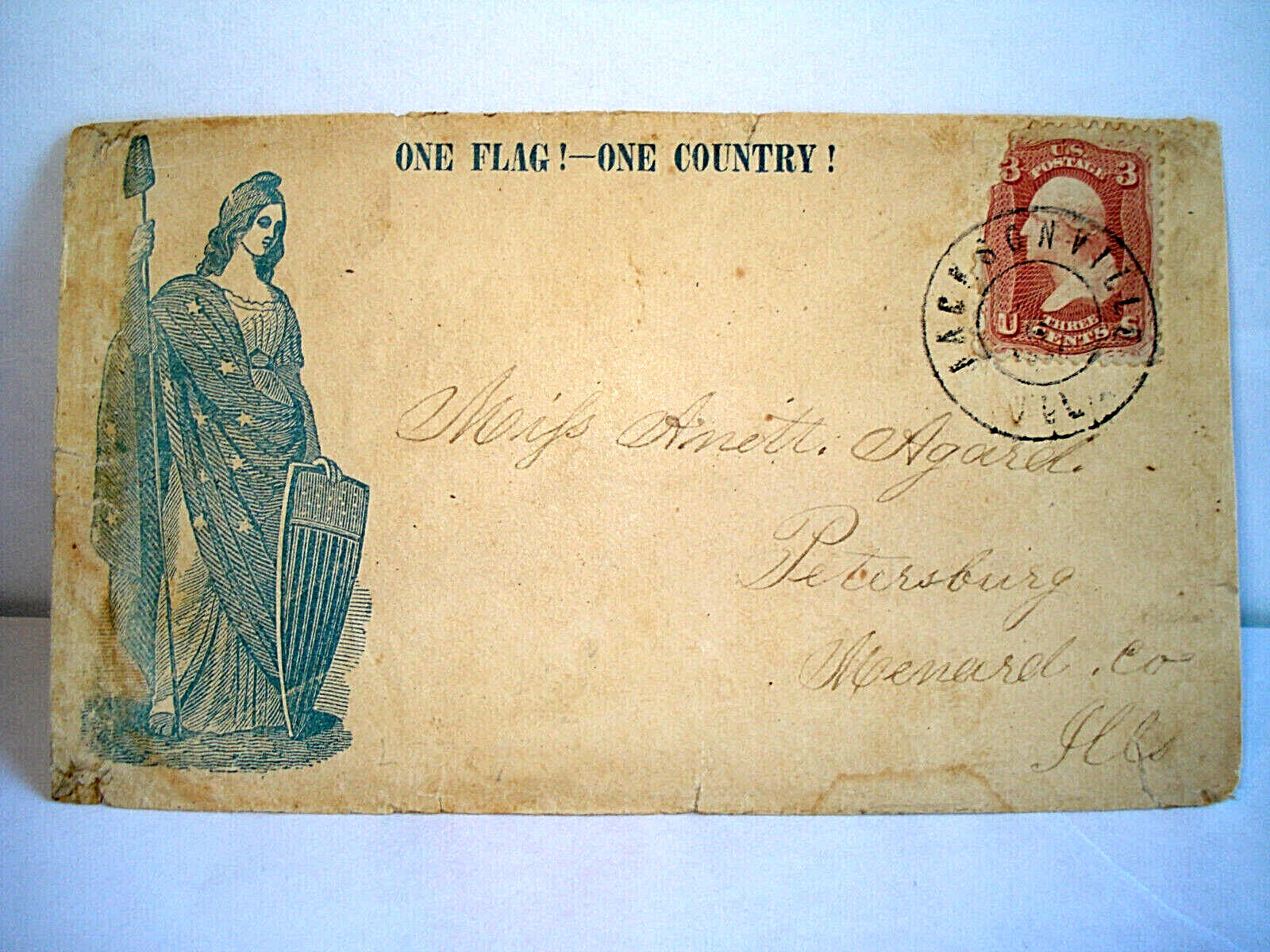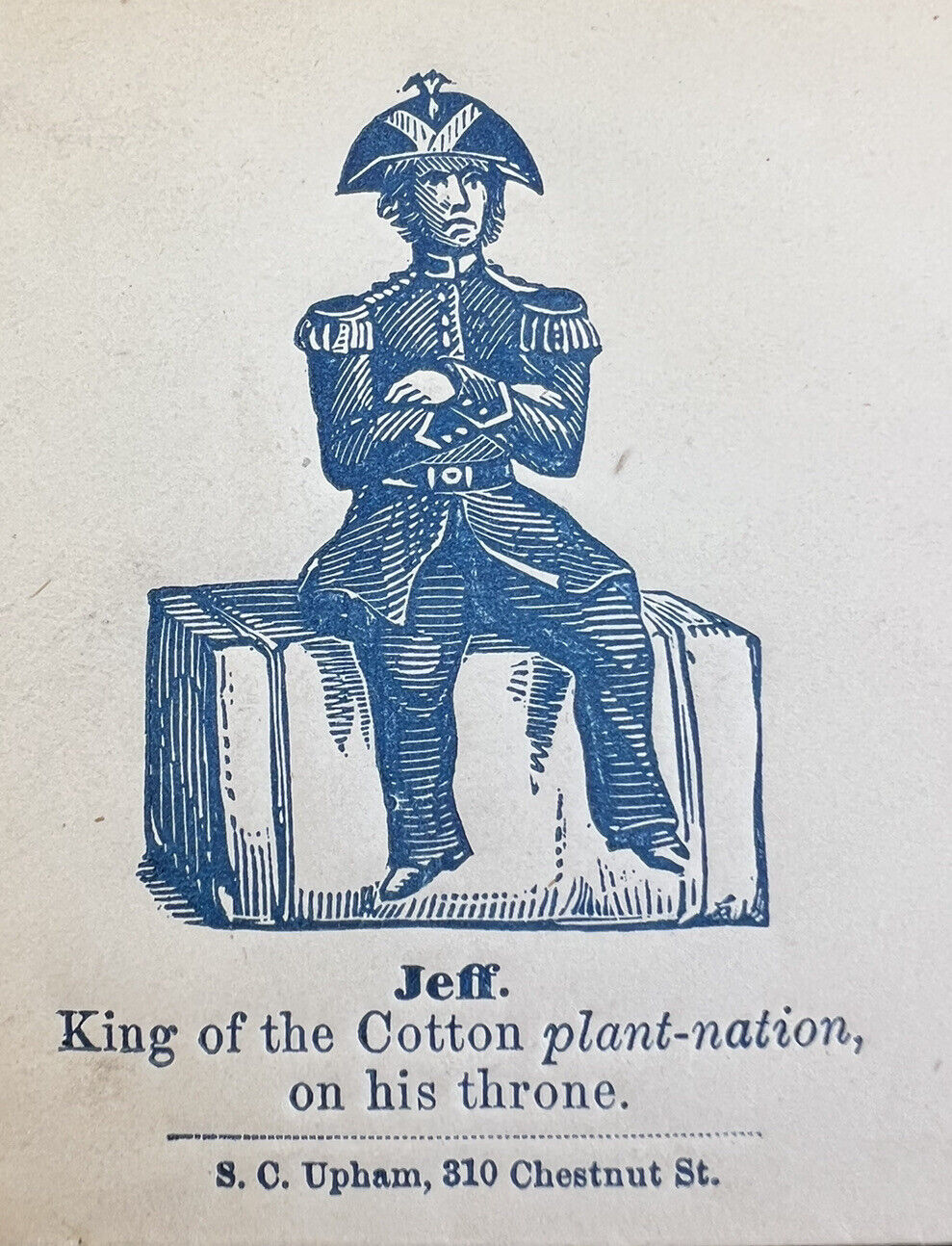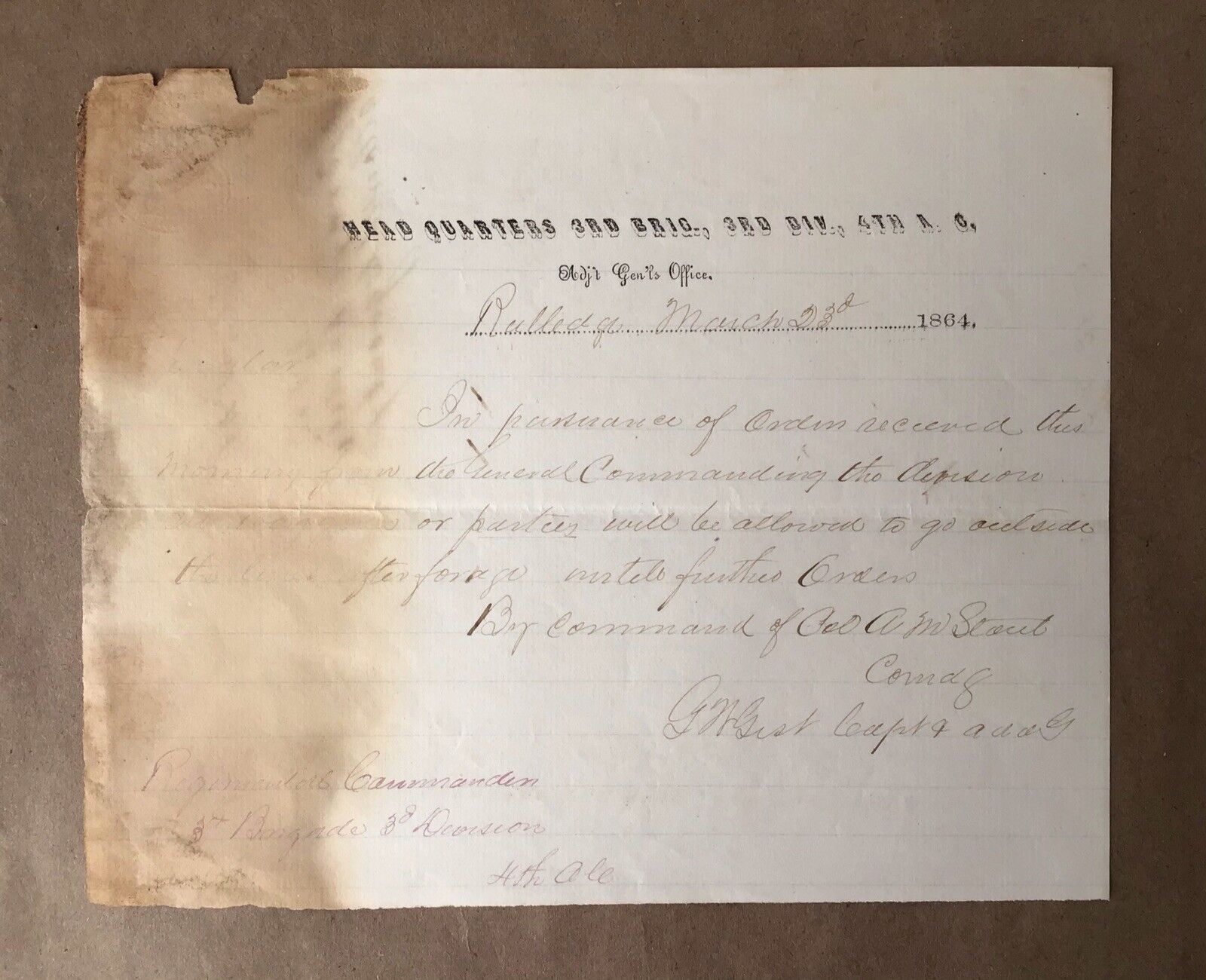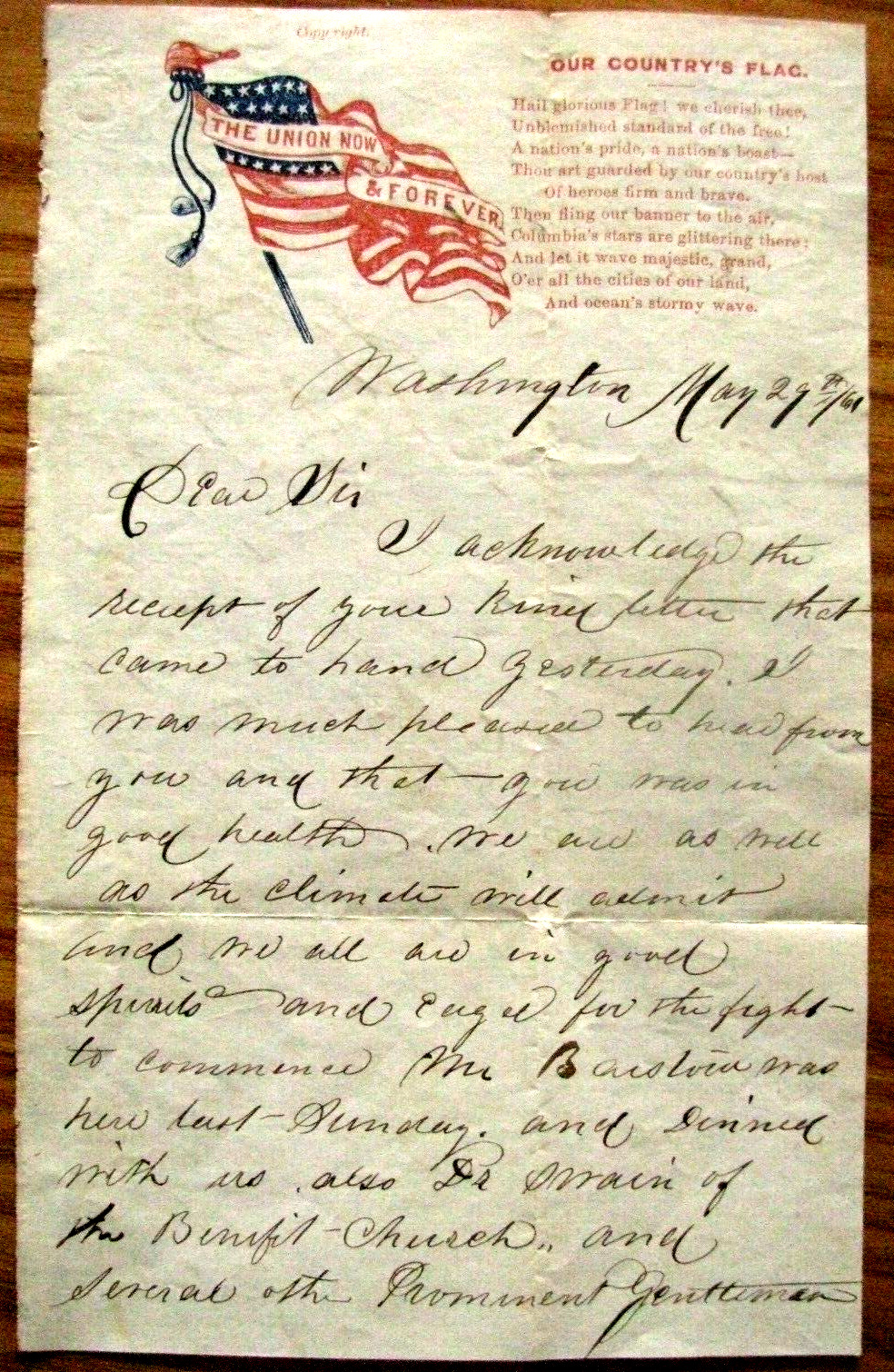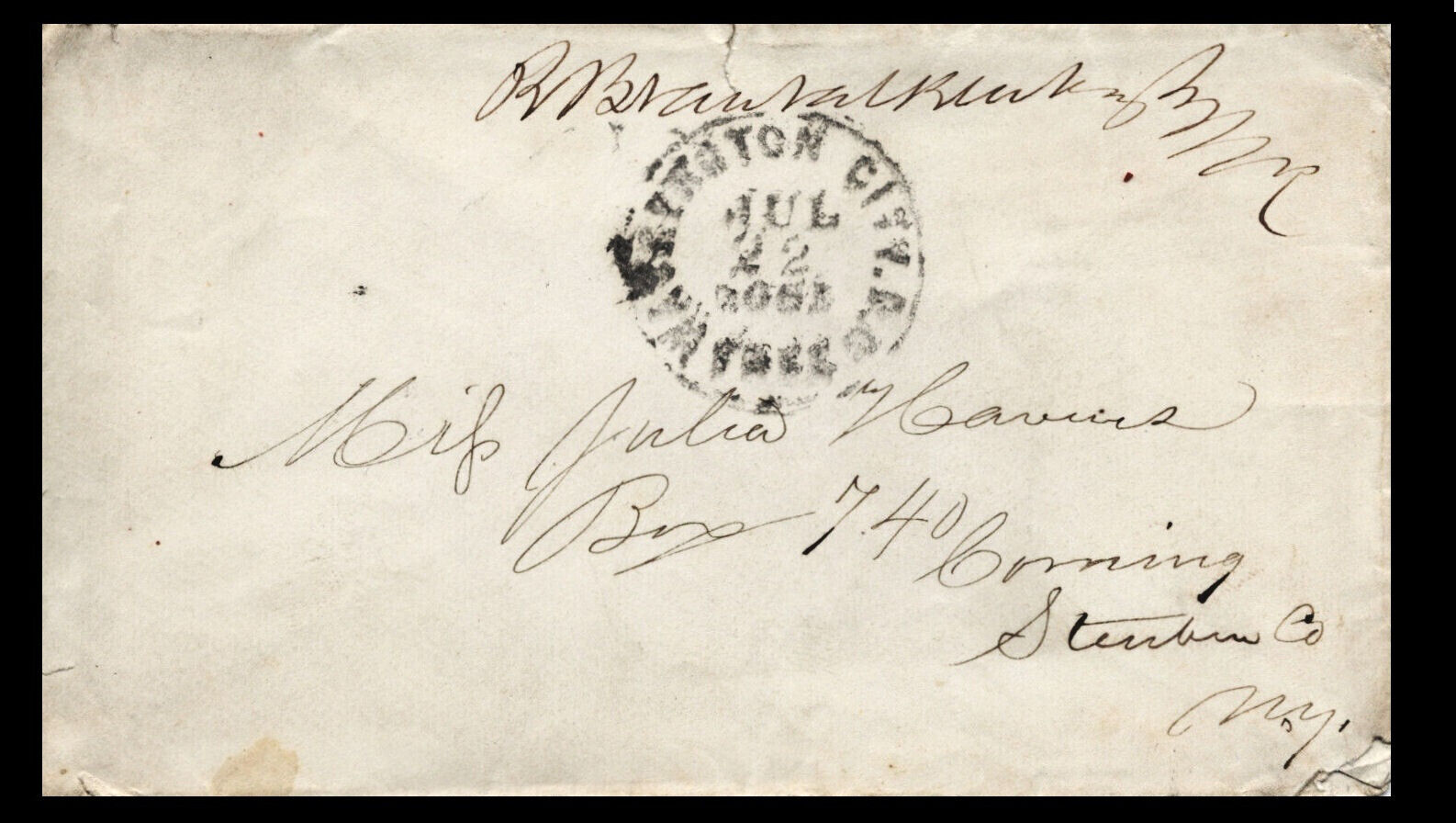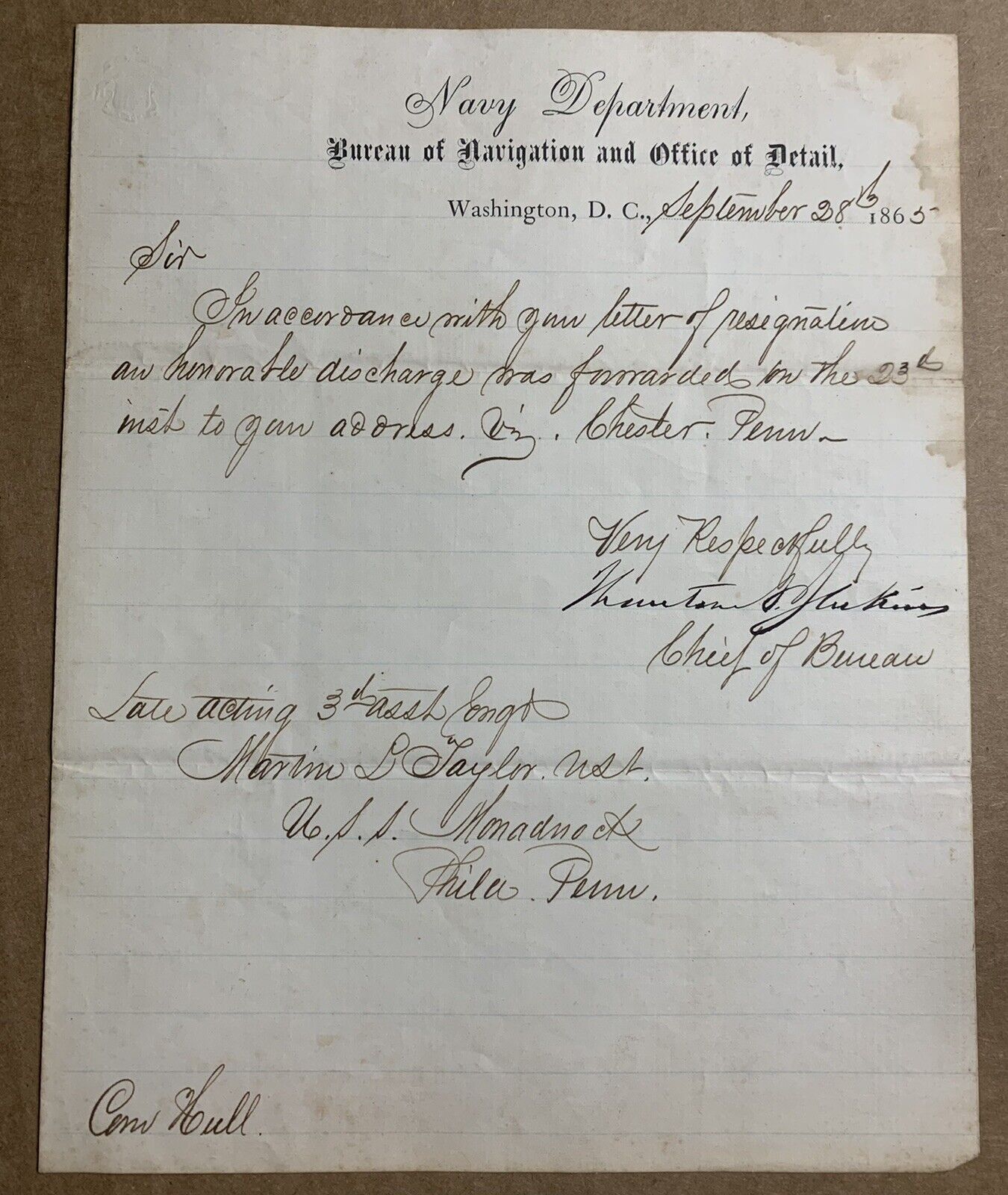-40%
Pennsylvania Rail Road Company United States Army Goods 1864 Broadside
$ 92.4
- Description
- Size Guide
Description
Excellent Pennsylvania Rail Road CompanyUnited States Army Goods 1864 Broadside
June 4, 1864 shipment of army supplies from Saint Louis, MO by (A. Q. M.) Capt. R. S. Hart to (A. Q. M.) Capt. A S. Ashmead of Philadelphia who was to ship them to (A. Q. M.) Lt. Col. Cross at Pittsburgh, PA.
Research included on all 3 officers.
Broadside measures 14 x 8 inches.
The following is transcribed from the book
Pittsburgh during the American Civil War 1860-1865
and provides greater detail on Camp Copeland:
Camp Copeland, located near the Pennsylvania Railroad tracks at Braddock’s Field, opened on August 1, 1863. The site selected by Major General Brooks commanding the Department of the Monongahela and General Joseph Copeland, accordingly set on a “beautiful ridge of natural drains on every side. Drinking water was good and sufficient quantity for all purposes.”
The
Pittsburgh Post
reported, “Troops at Camp Howe (Oakland) would be immediately quarter there, under the command of Captain Frank Beach of the 16th Connecticut Volunteers.”
According to the 1917
Unwritten History of Braddock’s Field
, the camp encompassed a portion of the former Mill’s farm near Braddock’s Field. Brigadier General Thomas L. Kane assumed command of the camp on July 4, 1863, but was relieved two weeks later on July 18 by Brigadier Joseph T. Copeland.
The camp was subsequently named for 50-year-old Brigadier General Joseph T. Copeland of Maine. General Copeland, a Supreme Court justice in Michigan prior to the war, commanded the First and later the Fifth Michigan Cavalry before being assigned to a Michigan cavalry brigade. In July 1863, on the eve of the Battle of Gettysburg, command of the brigade was assigned to a much younger General George Armstrong Custer. The encampment opened in the summer and initially consisted of tents for several months.
In November 1863, Lt. Colonel Cross, Deputy Quartermaster in Pittsburgh, suggested buildings be erected at Camp Copeland, or that a portion of quarters still standing at Camp Howe, be repaired for immediate occupancy. It was not until December 1863 that the Quartermaster’s Office in Pittsburgh appealed to Washington for stoves to be procured for the camp. Although wood appeared scarce in the area, coal was abundant. Lt. Colonel Cross also noted that buildings could not be erected until January 1, 1864, due to nearly three weeks of ‘the most severe weather that had occurred for many years.”
FREE SHIPPING - Shipping to lower 48 only
Thanks for looking at my auctions






